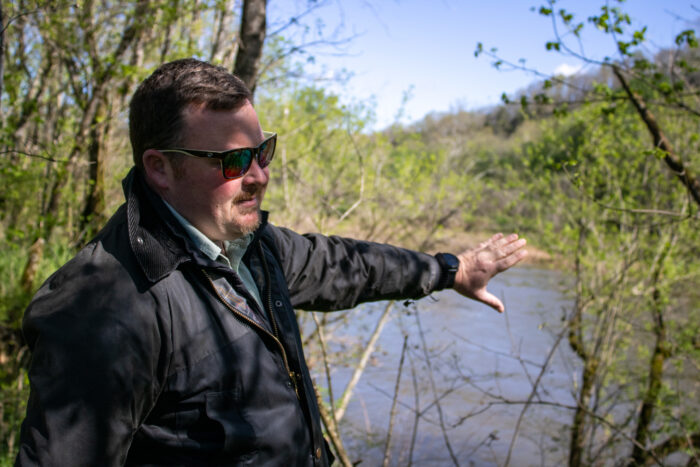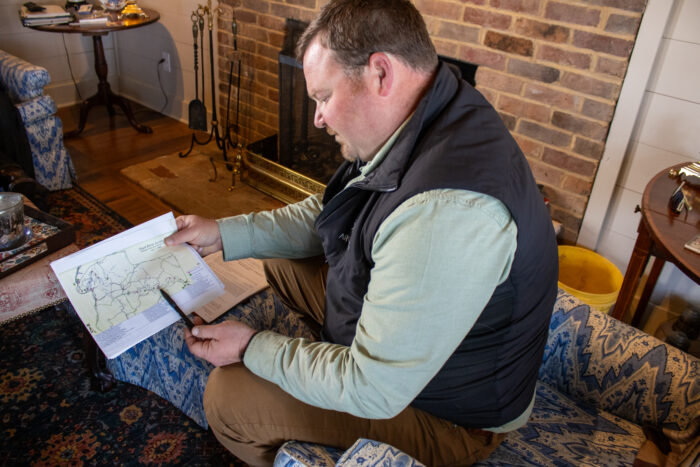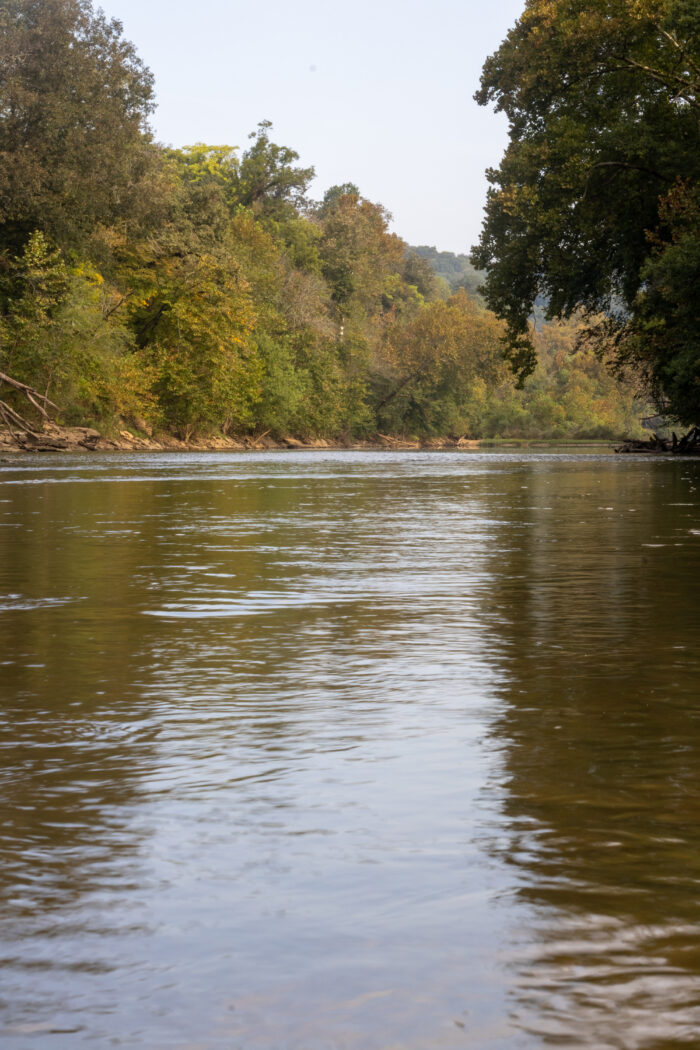The Duck River is one of the ‘most endangered’ in the U.S.
For more than 160 years, John McEwen’s family has called a bend in Tennessee’s Duck River home.
“It’s just kind of the life blood that flowed through the farm as we grew up,” he said while sitting in a cabin on the property that was built in the mid-1860s. “Swimming in it, playing in it, fishing in it, it was just part of who we are.”
The Duck River is one of the crown jewels of the Tennessee river system. It’s the longest waterway that is located entirely within the state, meandering through seven counties before meeting the Tennessee River.

“It’s kind of romantic the way it just bends and makes its way through Middle Tennessee. It’s unlike any other river,” McEwen said.
Part of what makes the Duck River so unique is its world-class wealth of wildlife. The Duck is habitat for hundreds of species, making it one of the most biodiverse rivers on the planet. The river is so rich with aquatic life it was featured in an issue of National Geographic.
The waterway’s incredible wildlife help make it the backbone of the region’s outdoor recreation economy. The Duck River is part of a river system enjoyed by more than 150,000 anglers, kayakers, canoers, and boaters each year.
But McEwen – and many other people who live near and enjoy the Duck River – worry about the waterway’s future.
A 19-million gallon per day increase
Middle Tennessee is one of the fastest-growing areas in the country, and the rapid development is putting huge amounts of pressure on the Duck River. To keep up with booming growth, eight local water utilities want to drastically increase the amount of water they pull from the Duck River. In all, the proposals ask for an additional 19 million gallons to be taken from the river each day.

“The Duck River is a natural treasure with limited capacity. When utilities allow unbridled growth at the expense of protecting the river for current and future generations, they risk killing the river’s ecosystems,” George Nolan, director of SELC’s Tennessee Office, said.
The Duck has faced similar threats from development in the past. In 2022, SELC, along with the Tennessee Wildlife Federation and The Nature Conservancy, successfully defended water withdrawal limitations that state regulators included in a local water utility’s withdrawal permit. The limitations restrict the amount of water pumped from the river during times of low flow or drought, protecting the Duck River’s incredible wildlife and overall health.
But things are different this time. State regulators did not include enforceable flow restrictions in their first round of finalized permits, meaning there is no buffer for when the river is low or during times of drought – something that is becoming increasingly common due to climate change.

“Droughts are inevitable, and when they happen, special measures must be taken to protect a special river. If we want the Duck River to remain a source of great fishing, world class biodiversity, and clean drinking water, the state must mandate water conservation and drought management measures that ratchet down human water consumption during periods of low rainfall,” Nolan said.
“The Tennessee Department of Environment and Conservation must require all water utilities to manage human water consumption carefully during droughts so that the Duck can remain a healthy, vibrant river.”
McEwen says he’s already seen historic lows on the river that runs through his farm.
“Last year we were able to cross it in a UTV – a Polaris ranger – which was the first time we were ever able to do that. I would just think ‘goodness this river is getting so low now,’” McEwen recalled. “I just wonder if they pull more water out, how low will it get?”
One of America’s ‘most endangered’ rivers
The proposed water withdrawals landed Duck River as number three on American Rivers’ Most Endangered Rivers of 2024 list, alongside other threatened rivers like Alaska’s Kobuk River and the Little Pee Dee River in North and South Carolina.

“If we want reliable clean drinking water, and if we want the Duck River to continue sustaining its communities, we must take action now to protect it,” said Anabel Winitsky, Southeast Conservation Associate Director for American Rivers.
The group, alongside SELC, the Harpeth Conservancy, and the Tennessee Wildlife Federation, are urging Tennessee Governor Bill Lee to take three critical steps to better protect the Duck River:
- Convene a technical working group this spring, which regularly meets to provide expertise and recommendations regarding water management and conservation in the Duck River watershed.
- Direct the Tennessee Department of Environment and Conservation (TDEC) to develop a comprehensive watershed plan for the Duck River to manage its long-term and sustainable use proactively.
- Fund much-needed scientific studies to understand the flow needs of the river.
Growing with “common sense”
McEwen and his relatives hope more research and a long-term plan for the river can address the needs of a growing community without sacrificing one of the region’s most incredible and unique resources.
“The reason people want to come here is because of these very natural resources we’re talking about. So, to use them to fuel the growth, I just don’t think its sustainable,” McEwen said
“I’m not against development or expansion, but it’s got to be done with some common sense. There’s got to be a balance here,” John’s uncle, Bill McEwen, added.
If that balance isn’t found, Bill McEwen worries future generations won’t be able to enjoy and love the Duck River like he has.
“It would be a grave mistake. I think people would look back and say, ‘My God, what happened to cause this beautiful stream of water to be what it is now?”
